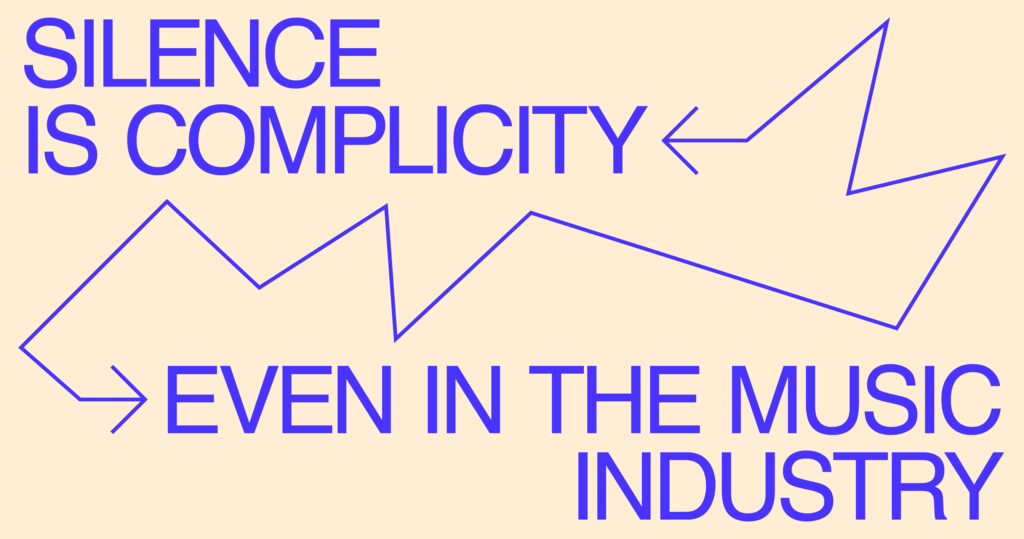Three Labels Control 80% Of The U.S. Music Industry. What Responsibility Comes With That Power?
A few thoughts about the Big Three and corporate complicity.

In recent months, the music media has responded to the political climate by zooming in on artist behavior: Have or haven’t they condemned Trump? Where do they stand? What do they suggest we do to resist? Publications including The FADER have increasingly looked to celebrities to provide a moral compass, to demonstrate what large-scale compassion looks like, and to show their peers what they’re doing wrong.
The behavior of individual artists and independent labels has been held up as evidence that “the music industry is uniting against Trump.” Would that be the same music industry that congratulated Trump on his election and asked for consideration in an open letter? While we’ve seen big moves from smaller private companies like Bandcamp, there’s been crickets from those holding the most cards. When it comes down to it, just three corporations control around 80% of the American music market: Sony Music, Universal Music Group, and Warner Music Group. Why aren’t we asking them where they stand on Trump?
Before you scoff, consider that corporations outside of the music industry are setting a precedent by taking stands. In February, 127 tech companies, including Apple, Airbnb, and Facebook, signed a motion supporting the legal fight against Trump’s Islamophobic travel ban. At the end of May, some of the same big names, alongside Google, Gap, National Grid, and more, spoke out to urge Trump not to back out of the Paris Agreement on climate change. And in August, the CEO members of Trump’s corporate advisory board publicly cut ties with him following his failure to not only condemn white nationalists in the wake of Charlottesville, but to proclaim “both sides” — racist right-wing extremists and anti-fascist protesters — at fault.
According to the organizers behind Backers of Hate, a site that names and shames corporations that they say both stand to profit from and support Trump’s white supremacist agenda, applying pressure to CEOs is just as important as calling your representative in Congress. As Ana Maria Archilla of the Center for Popular Democracy, one of groups behind Backers of Hate, told Time, “To the extent that they are quietly placating the behavior of this White House, [corporations] are just as complicit as Ivanka Trump."
How complicit are Sony Music, Universal Music Group, and Warner Music Group?
How complicit are Sony Music, Universal Music Group, and Warner Music Group? What responsibility does the power that these three mega-labels hold over the country’s music economy come with? Kazuo Hirai, the chief executive of Sony — the parent company of Sony Music — made his position on Trump clear back in January: “Let’s wait until he’s actually inaugurated, and what his policies are going to be on things that are going to impact us...and then we’ll deal with it.” When I reached out to Sony Music to ask whether the label would be taking a stance following Trump’s hateful words and actions, they said, “No comment.”
In May, Universal Music Group’s CEO Lucian Grainge was quick to condemn the suicide attackers at Ariana Grande’s Manchester concert for “a level of evil beyond comprehension.” While it’s important to take a stance, corporations often only do so when it’s politically beneficial: denouncing an Islamic terrorist attack is one thing, but what about domestic terrorism inflicted by white nationalists, or state-sponsored terror at the hands of a racist police force? Are those evils any more comprehensible? I couldn’t get a response from UMG’s corporate PR when I asked for comment.
Of the three, Warner Music Group has provided the biggest clue to its allegiances — twice over. The music conglomerate is owned by billionaire Len Blavatnik — named Britain’s richest man in 2015 — who in spring 2016 donated $1 million to an anti-Trump GOP group. Before you get too excited, his company Access Industries donated another cool million a year later, this time to Donald Trump’s inauguration committee. Wherever his personal politics lie, Blavatnik’s political actions underscore his complicity. I received no response from Warner’s corporate PR when I asked whether the company would be speaking out against Trump.
To effectively challenge Trump’s racism, sexism, Islamophobia, homophobia, and transphobia, every corporation needs to take a long hard look at itself — including those at the highest echelons of the music industry, the self-proclaimed bastion of creativity and innovation. What is creative about maintaining the status quo? What is innovative about oppression?
If corporations want the benefits of being classified as people — including but not limited to the ability to donate to political parties and practice religious freedom — then isn’t it time they be held to the same moral standards?